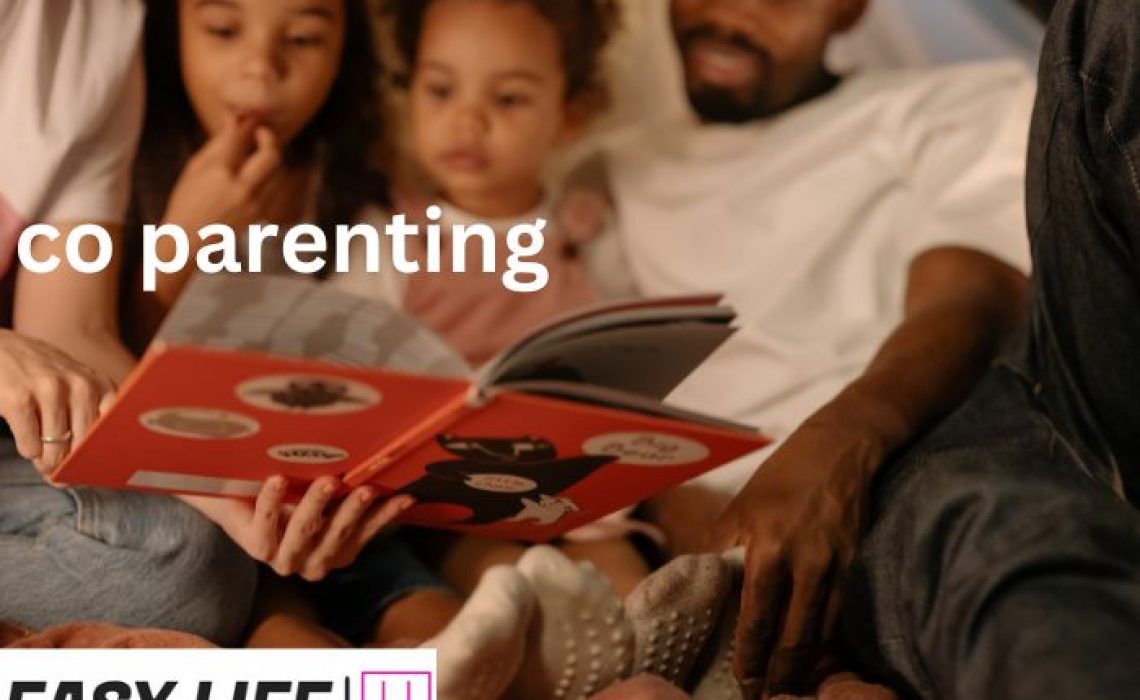Co-parenting after a separation or divorce can be challenging, but it’s essential to provide a stable and nurturing environment for children. This article offers strategies for successful co-parenting, including effective communication, putting children first, being flexible, and respecting each other’s boundaries.
Table of Contents
ToggleWhat is a Co-parenting?
Co-parenting is a parenting arrangement where two parents who are no longer in a romantic relationship work together to raise their child or children. This can include sharing responsibilities, making decisions, and creating a parenting plan that takes into account the needs and best interests of the child. Co-parenting is often used when parents divorce, separate, or are not in a romantic relationship, but it can also be used when parents were never in a romantic relationship but have a child together. The goal of co-parenting is to provide a stable and loving environment for the child, even if the parents are no longer together.
What are the 3 types of co-parenting?
The three types of co-parenting are:
- Cooperative Co-Parenting: This type of co-parenting involves both parents working together amicably to raise their children. Both parents communicate effectively, make joint decisions regarding the children’s well-being, and are flexible in accommodating each other’s schedules and needs. Cooperative co-parenting is often considered the most effective and beneficial type of co-parenting for children.
- Parallel Co-Parenting: In this type of co-parenting, both parents disengage from each other and maintain separate parenting styles and schedules. They do not communicate much and make decisions regarding their children’s upbringing independently. While parallel co-parenting can help minimize conflict between parents, it can also lead to children feeling caught in the middle of their parents’ disagreements.
- Conflictual Co-Parenting: This type of co-parenting involves high levels of conflict between parents, with ongoing disagreements and arguments. Communication is often hostile and negative, and decisions regarding the children’s well-being are often made independently by each parent. Conflictual co-parenting can be detrimental to children’s well-being and is often associated with increased stress and emotional distress.
Here are some tips for successful co-parenting:
1. Put the Children First
The most important thing to remember when co-parenting is that your children’s well-being should always be your top priority. This means putting your feelings aside and focusing on what is best for your kids. Make sure that both parents are involved in important decisions regarding the children’s education, healthcare, and extracurricular activities.
2. Communicate Effectively
Communication is key when it comes to co-parenting. Both parents need to be willing to communicate openly and honestly with each other, even if they don’t always agree. Make sure to keep each other updated on any important information regarding the children, and be respectful when discussing sensitive topics.
3. Consistency
Both parents should be consistent in their parenting styles and decisions. This helps to provide stability and predictability for the child, which can help them feel secure and loved.
4. Be Flexible
Flexibility is crucial when it comes to co-parenting. Life is unpredictable, and things don’t always go according to plan. Both parents need to be willing to be flexible and make changes when necessary to accommodate each other’s schedules and needs.
5. Respect Each Other’s Boundaries
While it’s important to communicate effectively, it’s also important to respect each other’s boundaries. Both parents need to have their own space and time with their children, and it’s important to respect each other’s parenting styles.
6. Support
Both parents should offer emotional and practical support to each other and their children. This can include being there for each other during difficult times, helping with homework or activities, and providing love and encouragement.
7. Teamwork
Co-parenting requires teamwork. Both parents should work together as a team to make decisions and solve problems. They should avoid competition or conflict and instead focus on finding common ground.
8. Focus on the child
Both parents should prioritize the needs and best interests of their children over their wants or desires. They should work together to provide a safe and loving environment for their child, and they should be willing to put their child’s needs first.
9. Positive communication
Both parents should avoid negative talk or criticism of each other in front of their children. They should focus on positive communication and work to build each other up, even when they don’t agree on everything.
10. Shared responsibility
Both parents should share in the responsibilities of parenting, such as attending school events, medical appointments, and extracurricular activities. This helps to ensure that the child feels loved and supported by both parents.
11. Agreement on major decisions
Both parents should agree on major decisions that affect their child’s life, such as education, religion, and medical care. This helps to provide consistency and stability for the child.
12. Keep a Positive Attitude
It can be challenging, but it’s important to keep a positive attitude. Focus on the good things about your co-parenting relationship and the benefits it provides for your children. Remember that your children will benefit from having two loving and involved parents in their lives.
Conclusion
In conclusion, co-parenting can be a difficult and emotional journey, but it is also incredibly rewarding. By putting your children first, communicating effectively, being flexible, respecting each other’s boundaries, and keeping a positive attitude, you can create a successful bi-parental care relationship that benefits everyone involved.
Related article: What does authoritative parenting do to a child?
Related article: Why Do Parents Become Helicopter Parents?









